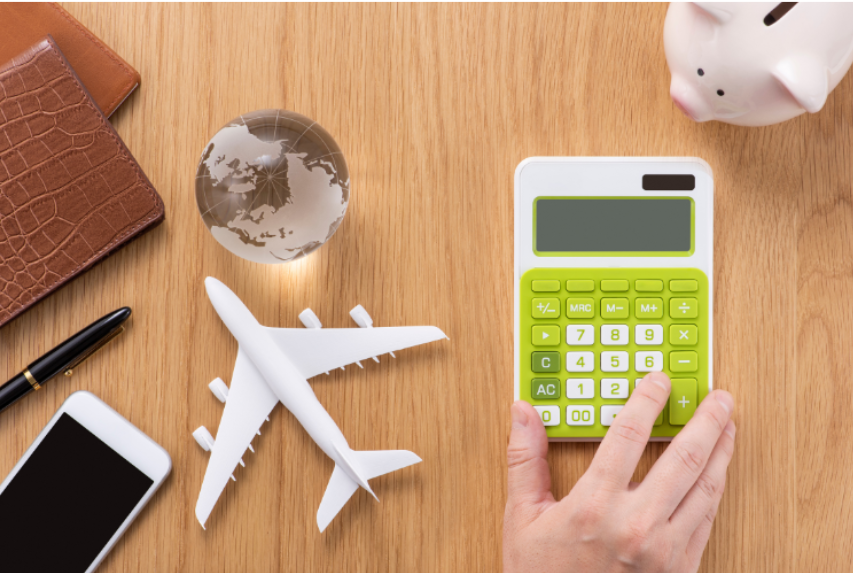
How to Budget and Not Overspend During Vacation
A vacation is a time to relax, unwind, and enjoy time with loved ones. As everyone packs their suitcases and departs for their ideal destination, it has become a long-standing custom where memories are built, families become closer, and the world becomes a little bit smaller. However, if there is one time when budgets are likely to be ignored, it is during vacation.
You put a lot of effort into earning your money, so you and your household should occasionally indulge. However, it’s crucial to keep in mind not to spend carelessly if you don’t want to blow your long-term stability and lose sight of your financial objectives. The easiest way to avoid this is to prepare ahead of time, so you can end your vacation feeling comfortable and rejuvenated rather than stressed out about the debts you racked up on your credit card.
The Importance of a Budget During Vacation
Creating a budget for the vacation is essential but challenging, as it is with any financial matter. Budgeting is challenging because it necessitates making trade-offs between our immediate needs and long-term gains.
Everyone, regardless of age, stage of life, or level of income, needs a budget. The important thing about a budget is that it makes sure that your spending aligns with your priorities. Go into the holiday season with a budget in mind, and seriously consider how much you can spend without turning to unfavorable sources of financing.
Put only as much on your credit card as you can reasonably pay off in that month if you don’t want to end up in credit card debt. Never use your emergency fund or retirement funds to pay for a vacation. Do not spend more than you can afford.
How to Budget for a Vacation
The more specific you can be when making your vacation budget, the better. How much will you shell out for travel and lodging? Your budget should take into consideration everything you’ll need to buy for your vacation, including any necessary flights, lodging, food, and presents, as well as transportation while you’re there.
Prioritizing your expenditures before traveling will make it simpler to cut down the list of possible sight-seeing and purchases.
Although it is not directly a cost, you also need to take into account the fact that if you have a job or a business that doesn’t pay you while you are on vacation, you won’t get paid for that period you are gone. As a result, you should also account for that when planning your vacation.
How to Avoid Overspending on Your Vacation
Make a Budget
You decide what budget to create. Although there aren’t any hard-and-fast guidelines for vacation spending, you should consider the big picture. How much money can you spend without depleting your savings or incurring debt? Avoid trying to keep up with the Joneses or being persuaded to go places with pals who can afford to spend money you cannot afford.
The first crucial step you can take when creating a budget is to have a clear understanding of what all of your potential expenses might be. It’s tempting to assume that a low-key vacation will be less expensive. Research the actual costs for things like travel expenses including gas and airfare, hotel, meals, local transportation, activity fees, souvenir purchasing, childcare, and entertainment before you go. Be sure to do the mathematics beforehand and add extra money to the budget for unforeseen costs.
Plan Ahead of Time and Save

An impromptu vacation isn’t the most economical option, especially when going on vacation with a family or group.
Early booking may provide you with the opportunity to benefit from reduced rates, pick from the best vacation rentals, and look into bargains and special pricing. Although last minute sales can occasionally go in your favor, when you leave it to chance, you are taking a risk that may restrict your possibilities and doesn’t always pay off. Early planning allows you to set clear objectives and start saving money. It is ideal to spend cash on your vacation rather than accumulate credit card debt.
Bring Some Food Items and Snacks

One of the biggest and most difficult to manage expenses while traveling is food and alcohol. At a casual restaurant, a few extra desserts, appetizers, and drinks can cause your bill to soar before your eyes. Even while you might want to sample some of the local cuisine, especially in places known for dishes you can only find there, you can save a lot of money by cutting back on your restaurant meals.
Consider bringing some of your own alcohol and food, or visit a nearby supermarket to load up on essentials and goodies.
Spending Less on Vacation Doesn’t Mean Having Less Fun
Making memories, having fun, and celebrating achievements are the goals of vacations. Spending less does not require you to sacrifice enjoyable or memorable experiences. Budgeting can make your vacation better since it makes you think ahead, establish goals, and be deliberate about what you want to get out of your time away.
If debt has hindered you from going on vacation with your family or loved ones, you should reach out to us at EmpireOne Credit. We have trained debt experts that will guide you in getting a hold of your finances. We help people in Ontario to know which debt solution is suitable for them, whether it is a consumer proposal, debt consolidation, or bankruptcy. You owe it to yourself, book a free consultation with us today to become debt free.





